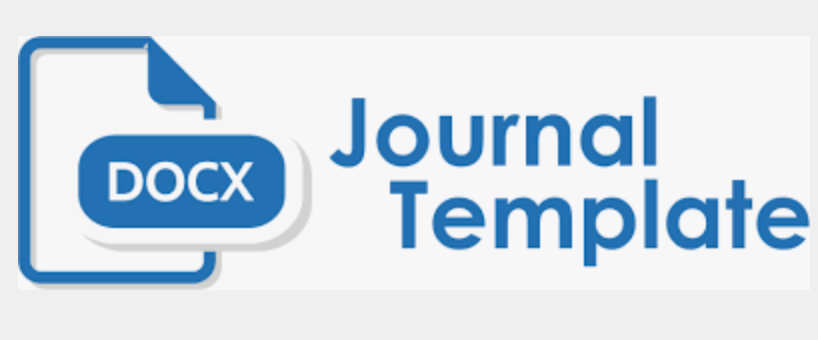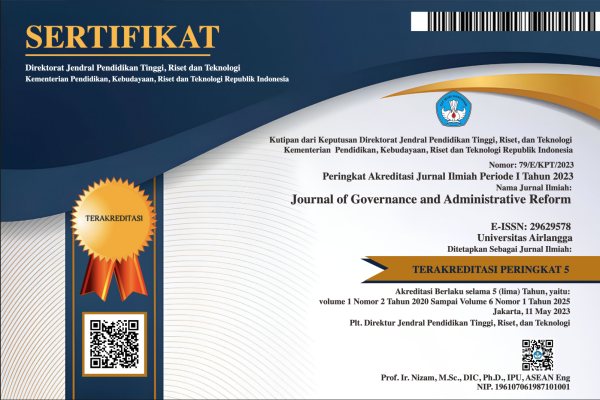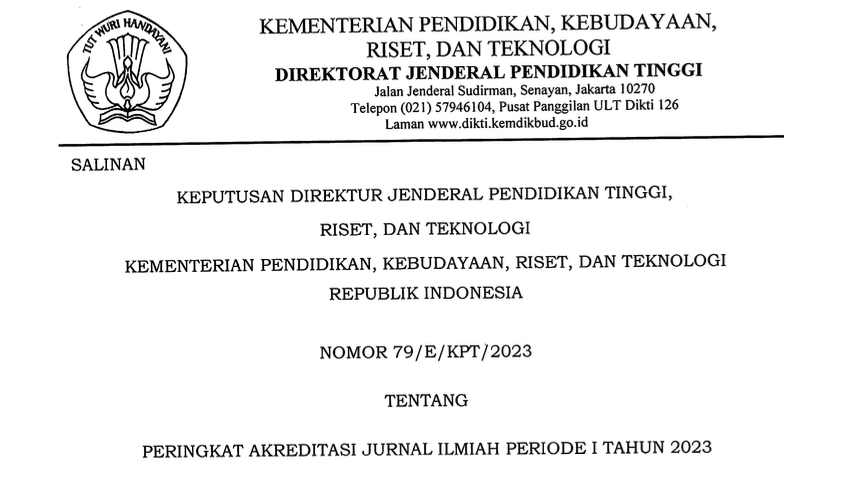The Political Economy of Fuel Subsidy Removal: Governance and Sustainable Development in Nigeria
Downloads
Abstract
The removal of fuel subsidies in Nigeria has generated considerable debate regarding its implications for governance, economic stability, and public welfare. This study explores the governance mechanisms underpinning subsidy removal and assesses its economic and social consequences, drawing on data collected from 385 respondents in Bida, Niger State. A binary logit regression model was utilized to analyze the economic, social, political, and external variables influencing policy outcomes. The results indicate that, although the subsidy removal policy is intended to relieve fiscal burdens and promote economic efficiency, it has contributed to rising inflation and disproportionately impacted low-income households, thereby exacerbating social inequality. On the social front, the policy has incited significant public dissatisfaction, particularly due to escalating transportation and living expenses, while government-provided palliatives are widely perceived as insufficient. Politically, entrenched weaknesses in governance, a lack of transparency, and ongoing corruption have undermined public trust and complicated the policy’s legitimacy and acceptance. These findings highlight the centrality of governance in determining the effectiveness of economic reform policies. To mitigate adverse effects and enhance policy outcomes, the study recommends the implementation of targeted subsidies for vulnerable populations, increased investment in accessible public transportation infrastructure, and comprehensive institutional reforms to improve transparency and accountability in the allocation of subsidy savings. Ensuring that governance frameworks align with prevailing socio-economic realities is essential for achieving equitable and sustainable policy.
Keywords: Fuel subsidy; governance; sustainable development; Nigeria; economic policy.
Abstrak
Penghapusan subsidi bahan bakar di Nigeria telah memicu perdebatan luas terkait dampaknya terhadap tata kelola pemerintahan, stabilitas ekonomi, dan kesejahteraan masyarakat. Studi ini mengeksplorasi mekanisme tata kelola yang mendasari kebijakan penghapusan subsidi serta menilai konsekuensi ekonomi dan sosialnya, berdasarkan data yang dikumpulkan dari 385 responden di Bida, Negara Bagian Niger. Model regresi logit biner digunakan untuk menganalisis variabel ekonomi, sosial, politik, dan eksternal yang memengaruhi hasil kebijakan. Hasil penelitian menunjukkan bahwa meskipun kebijakan penghapusan subsidi bertujuan untuk mengurangi beban fiskal dan mendorong efisiensi ekonomi, kebijakan tersebut justru menyebabkan peningkatan inflasi dan berdampak secara tidak proporsional terhadap rumah tangga berpendapatan rendah, sehingga memperparah ketimpangan sosial. Dari sisi sosial, kebijakan ini memicu ketidakpuasan publik yang signifikan, terutama akibat meningkatnya biaya transportasi dan biaya hidup, sementara bantuan sosial dari pemerintah dipandang tidak memadai. Secara politik, kelemahan dalam struktur tata kelola, kurangnya transparansi, dan korupsi yang terus berlanjut telah merusak kepercayaan publik serta memperumit legitimasi dan penerimaan kebijakan ini. Temuan ini menegaskan pentingnya peran sentral tata kelola dalam menentukan efektivitas kebijakan reformasi ekonomi. Untuk mengurangi dampak negatif dan meningkatkan hasil kebijakan, studi ini merekomendasikan pemberian subsidi yang ditargetkan bagi kelompok rentan, peningkatan investasi dalam infrastruktur transportasi publik yang terjangkau, serta reformasi kelembagaan secara menyeluruh guna meningkatkan transparansi dan akuntabilitas dalam pengelolaan dana hasil penghematan subsidi. Penyesuaian praktik tata kelola dengan realitas sosial-ekonomi yang ada merupakan hal yang krusial untuk mencapai reformasi kebijakan yang adil dan berkelanjutan.
Kata kunci: Subsidi bahan bakar; tata kelola; pembangunan berkelanjutan; Nigeria; kebijakan ekonomi.
Abu, I., Mohammod, U., Muhammad, M., & Ahmed, S. (2024). Effect of fuel subsidy removal on socio-economic development of Chanchaga Local Government Area of Niger State. Kashere Journal of Politics and International Relations, 2(2), 340–354.
Adebiyi, M., & Mordi, C. (2012). A dynamic stochastic general equilibrium (DSGE) model of exchange rate pass-through to domestic inflation in Nigeria. ECOMOD Conference 2012.
Adenikinju, A. (2021). Fuel subsidy in Nigeria: Costs, benefits, and policy options. Journal of Energy Policy Research, 14(2), 123-138.
Adeoye, A. (2024, February 26). Nigeria’s economic crisis puts fuel subsidies removal under scrutiny. Financial Times. Retrieved from https://www.ft.com/content/29752a06-adea-4175-b278-22e0632c375a
Ajakaiye, O., & Fakiyesi, O. (2019). Managing fuel subsidy reforms in Nigeria: Socioeconomic and policy implications. African Economic Review, 17(3), 45-67.
Antimiani, A., Costantini, V., & Paglialunga, E. (2023). Fossil fuels subsidy removal and the EU carbon neutrality policy. Energy Economics, 119, 106524.
Black, S., Liu, A. A., Parry, I., & Vernon, N. (2023). IMF fossil fuel subsidies data: 2023 update. Retrieved from https://papers.ssrn.com/sol3/papers.cfm?abstract_id=4585306
BudgIT. (2023). Nigeria's subsidy expenditure and economic alternatives. BudgIT Research Publication.
Cerin, P. (2006). Bringing economic opportunity into line with environmental influence: A discussion on the Coase theorem and the Porter and van der Linde hypothesis. Ecological Economics, 209–225.
Coxhead, I., & Grainger, C. (2018). Fossil fuel subsidy reform in the developing world: Who wins, who loses, and why? Asian Development Review, 35(2), 180–203. https://doi.org/10.1162/adev_a_00119
Dernbach, J. C. (2003). Achieving sustainable development: The centrality and multiple facets of integrated decision-making. Indiana Journal of Global Legal Studies, 10(2), 247–285.
Evans, O., Nwaogwugwu, I., Vincent, O., Wale-Awe, O., Mesagan, E., & Ojapinwa, T. (2023). The socio-economics of the 2023 fuel subsidy removal in Nigeria. BizEcons Quarterly, 17, 12–32.
Gana, M. I., Rabi, T. A., & Nura, M. B. (2024). Implications of fuel subsidy removal on Nigeria’s sustainable development. Nigerian Journal of Management Sciences, 25(1), 279–286.
Greve, H., & Lay, J. (2023). "Stepping down the ladder": The impact of fossil fuel subsidy removal in a developing country. Journal of the Association of Environmental and Resource Economists, 10(1), 121–158.
IEA. (2021). Fossil fuel subsidies database. IEA Fossil Fuel Subsidies Database. Retrieved from https://www.iea.org/data-and-statistics/data-product/fossil-fuel-subsidies-database#overview
IISD. (2014). Subsidies to liquefied petroleum gas in India: An overview of recent reforms (Issue March). International Institute for Sustainable Development. Retrieved from https://www.iisd.org/gsi/sites/default/files/ffs_india_lpg_overview_2014.pdf
Ikenga, F. A., & Aluka, S. (2023). Benefit and challenges of fuel subsidy removal on Nigeria economy of fourth republic. Hampstead Psychological Associates, 24(7), 11222–11236.
International Monetary Fund (IMF). (2023). Nigeria: Fiscal policy and public finance review. Washington, D.C.: IMF Publications.
International Monetary Fund (IMF). (2024). Nigeria post–financing assessment discussions: Press release and staff report. IMF Country Reports, 24(49). Retrieved from https://www.elibrary.imf.org/journals/002/2024/049
Mustapha, A. R. (2018). Identity politics and social mobilization in Nigeria. Oxford University Press.
Nigeria Extractive Industries Transparency Initiative (NEITI). (2022). Nigeria’s oil revenue and subsidy burden: A transparency report. Abuja: NEITI.
Nwankwo, C., & Ibrahim, F. (2020). Social movements and policy change in Nigeria: The case of #OccupyNigeria. African Studies Quarterly, 18(3), 45–60.
Okafor, C. (2023, November 8). 4 months in and here’s how much Nigeria has saved on fuel subsidies. Business Insider Africa. Retrieved from https://africa.businessinsider.com/local/markets/4-months-in-and-heres-how-much-nigeria-has-saved-on-fuel-subsidies/p9s0g5e
Okafor, T. (2022). Measurement challenges in assessing social dynamics: A case study of Nigerian household surveys. Development in Practice, 32(4), 512–525.
Omotosho, B. S. (2019). Oil price shocks, fuel subsidies and macroeconomic (in)stability in Nigeria. Retrieved from https://ssrn.com/abstract=3771007
Olawale, A., & Okonkwo, C. (2020). The political economy of subsidy removal in Nigeria: A review of public protests and government responses. Nigerian Journal of Public Administration, 11(1), 89-105.
PWC. (2023). Fuel subsidy in Nigeria – Issues, challenges, and the way forward. Price Waterhouse Coopers Nigeria. Retrieved from https://www.pwc.com/ng/en/assets/pdf/fuel-subsidy-in-nigeria-issues-challenges-and-the-way-forward.pdf
Reuters. (2024, October 10). Nigeria’s NNPC raises fuel prices as it ditches costly subsidies. Reuters. Retrieved from https://www.reuters.com/business/energy/nigerias-nnpc-raises-fuel-prices-it-ditches-costly-subsidies-2024-10-10/
Statista. (2023). Impact of fuel subsidy removal on Nigerian households. Retrieved from https://www.statista.com/statistics/1417039/nigeria-fuel-subsidy-removal-impact/
World Bank. (2023). Nigeria development update December 2023: Turning the corner – From reforms to renewed hope, to results. World Bank. Retrieved from https://documents1.worldbank.org/curated/en/099121223114542074/pdf/P5029890fb199e0180a1730ee81c4687c3d.pdf
Copyright (c) 2025 Author

This work is licensed under a Creative Commons Attribution-ShareAlike 4.0 International License.
Jurnal Governance and Administrative Reform by Unair is licensed under a Creative Commons Attribution-ShareAlike 4.0 International License.
1. The journal allows the author to hold the copyright of the article without restrictions.
2. The journal allows the author(s) to retain publishing rights without restrictions
3. The legal formal aspect of journal publication accessibility refers to Creative Commons Attribution Share-Alike (CC BY-SA).






















